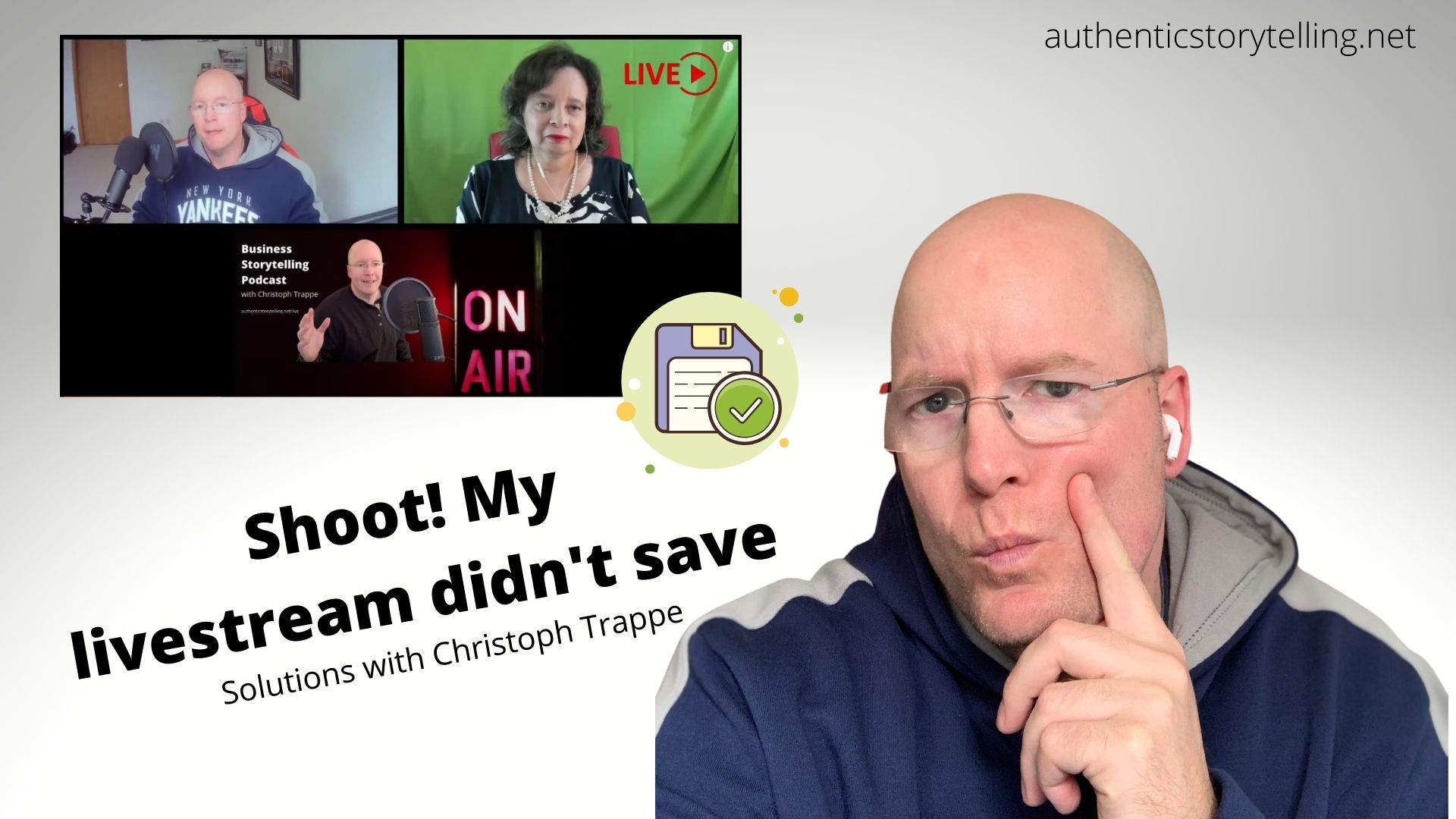Trappe Digital LLC may earn commissions from sponsored links and content. When you click and buy you also support us.
Many brands are starting podcasts and are then disappointed by the number of downloads. One way to maximize your podcasting is by livestreaming the recordings to your existing social communities. Do this to rock your podcast-related content performance. Of course, to make this work, you’ll have to grab the recording of the livestream and upload it to a podcast hosting site. I use Anchor, for example.
But what happens when the livestream worked and the recording didn’t for one reason or another. As I mentioned in my book “Going Live: Livestream your podcast to reach more people” there are all kinds of things that can go wrong. Many problems have solutions, especially if we’ve thought about different scenarios ahead of time. One solution that I ran across the other day is there’s a way to recover your livestreamed video even if it didn’t save locally on your streaming platform.
Now, before we dive into that, let me share briefly how I stream. Usually, I produce my shows from my iPad using Switcher Studio. Then I push that production to Restream, which then pushes it to:
Now, I should say I’ve never had it happen for Switcher or Restream to not save my streams for me to download. In fact, Switcher even saves it when you lose connectivity while you are saving. I did have that happen and it was a positive moment to see that nothing was lost.
The other day, I was using the Restream Live Studio and was streaming with three cameras total when my hosting laptop decided the need to restart. Even with the lost connectivity, Restream kept broadcasting until I returned. There was no stop in streaming even with the hosting devices gone for a minute or two.
Stream to YouTube
Some social networks make the downloading of videos easier than others. Facebook, where I currently don’t stream except for my daughter’s sporting events, allows you to download your live videos immediately when you stream natively in the Facebook app. I’ve found downloads from YouTube the easiest for my setup and workflow when I need to.
You can also download older videos using these steps. That’s something I did from a keynote in Berlin four years ago when I wanted to include a clip in my “The future of content” stream. I don’t have that saved locally anywhere and these steps made it easy for me to grab the clip again.
Downloading recordings from YouTube
There are several ways to download YouTube recordings. The easiest might be if you have access to the YouTube account to simply go to the video in the YouTube Studio section. Then click download. To get this drop down menu, click on the three dots right next to the video.

If you don’t have access to your YouTube account
If for one reason or another you can’t log into the YouTube account you can use the the YouTube Downloader. Simply go there and paste your YouTube video link into the downloader.
Click convert and follow the following prompts.


Every once in a while this site wants you to install a Chrome extension, which I don’t want to do. So I simply refresh until it allows me to download. Then it downloads directly to my computer.
There are other downloading tools as well that you could use as well and try.


